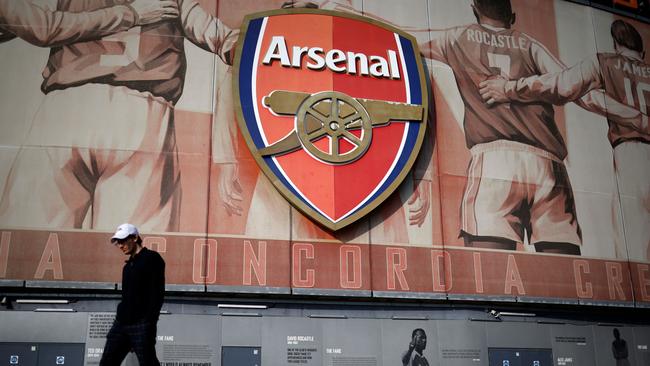EPL moves to ban future breakaway leagues
The English Premier League is set to change its rules to ensure that no member club will ever be able to join a breakaway European league again.

The English Premier League is set to change its rules to ensure that no member club will ever be able to join a breakaway European league again.
A governance review already being carried out by the EPL’s chief executive, Richard Masters, in conjunction with the FA will now focus specifically on ending any such future threat of an English team signing up to a rebel competition.
Under the Premier League’s rule L9, there is a list of other competitions that member clubs are permitted to play in, but the new rule will end any possible ambiguities around new competitions outside the existing football structures.
Some top-flight clubs are still pushing for the “big six” — Liverpool, Arsenal, Tottenham Hotspur, Chelsea and the two Manchester clubs — to face sanctions for joining the Super League on Sunday, only to pull out 48 hours later after a storm of criticism from their own fans, as well as threatened action from the government and the football authorities.
One club insider said rule L9 was “clearly broken”, as any Premier League member club needs prior written approval by the board to enter a new competition, and therefore the rebel clubs should face sanctions.
There is another view, however, that the clubs have been so devastated by the events of the past week — losing the goodwill of their fans, no longer being part of the European Club Association, losing key committee positions on the Premier League — that no longer being able to use the threat of a Super League is, in itself, enough of a punishment.
“The ‘big six’ have used that as their final bargaining chip for years — now it’s worthless,” a source said.
The moves came on the day that angry fans broke into Manchester United’s training ground and supporters also confronted Josh Kroenke, the Arsenal director and son of the majority shareholder, Stan, at a fans’ forum. One Arsenal’s Supporters Trust board member, Akhil Vyas, told Kroenke: “English football is clearly not for you, you should leave.”
Despite the anger here, Barcelona and Real Madrid are still refusing to concede defeat even though the La Liga rivals are the only two of the 12 clubs still involved.
The Real president, Florentino Perez, the supposed first chairman of the Super League, appeared to blame Manchester City for creating the “avalanche” that led to the clubs abandoning the project.
The Times revealed on Sunday that the leading English clubs had signed up to the breakaway competition but that City had been the most reluctant and last to join. Perez told Spanish radio: “There was one of the English clubs who didn’t seem so interested and that spread to the rest. They signed the contract but we could already see that they were not convinced. And then the avalanche started.”
When he was asked if it was City, Perez replied: “The one from Manchester saw the campaign saying this will kill the leagues, that it won’t allow merit, that it was the end of football. Uefa turned it into a show. It was as if we had dropped an atomic bomb.”
Barcelona’s president, Joan Laporta, said that the plan was “absolutely necessary”, adding: “The biggest clubs create the most financial resources and we must have our say in deciding how the earnings are shared.”
The 12 elite clubs wanted to boost their revenues by cutting Uefa out and replacing the Champions League with a new 20-team tournament. “The proposal is still standing,” Laporta added.
Juventus and AC Milan left open the possibility of joining a Super League at a later date.
Meanwhile, the government has announced its terms of reference for the fan-led review of football that will be overseen by Tracey Crouch MP.
As reported by The Times this week, it will “consider the multiple Owners’ and Directors’ Tests and whether they ares fit for purpose” and “assess calls for the creation of a single, independent football regulator”. It will also “investigate ways league administrators could better scrutinise clubs’ finances on a regular basis” and “examine the flow of money through the football pyramid”.
THE TIMES



To join the conversation, please log in. Don't have an account? Register
Join the conversation, you are commenting as Logout